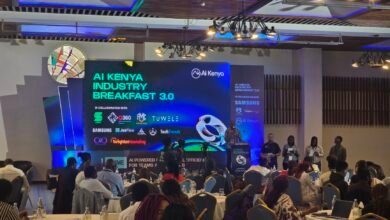Will AI Replace You at Work? It Depends on How You Adapt
By Nzola Miranda, Nzola Miranda is the Managing Director at Multichoice Kenya.
As artificial intelligence (AI) continues to advance and transform various industries, a prevailing concern has arisen: will AI render human labour obsolete? Reports highlighting automation, robotic workers, and self-driving vehicles frequently provoke anxiety regarding a future in which human employment is significantly diminished.
AI’s Impact on the Job Market
Experts indicate that AI and automation are expected to have a profound impact on employment. According to the World Economic Forum, up to 85 million jobs may be displaced due to these technological shifts. However, the same advancements are projected to create 97 million new roles, pointing to a complex and evolving job landscape.
The Real Question: How Will Society Adapt?
While such concerns are understandable, they often overlook the core issue. The critical question is not whether AI will eliminate jobs, but how society will adapt to a changing nature of work.
AI is already influencing a multitude of sectors:
- Customer service through automated chatbots
- Healthcare via diagnostic algorithms
- Entertainment, including personalized recommendations and video editing
In Kenya, companies like Multichoice are leveraging AI to enhance customer experience, optimize operations, and drive business growth.
Which Jobs Are Most at Risk?
Particularly in Africa, there is considerable anxiety about roles involving repetitive and routine tasks. Positions in:
- Manufacturing
- Retail
- Transportation
are especially vulnerable as machines become more proficient and cost-effective than human labor.
History Shows a Pattern of Reinvention
Technological evolution has historically displaced some jobs while creating others:
- The move from manual farming in the 19th century led to urban job growth
- The rise of the internet birthed digital roles like app developers and social media managers
The same cycle is expected with AI.
The Future of Work: Human Strengths Will Prevail
AI excels at:
- Processing data at high speeds
- Managing repetitive tasks
But it cannot replicate:
- Emotional intelligence
- Empathy
- Judgment
- Cultural storytelling
These human qualities remain essential in fields like healthcare, creative industries, and leadership.
Preparing for a Collaborative Future
The focus must shift from fearing AI to preparing for it. This means:
- Retraining and upskilling the workforce
- Investing in education around AI, robotics, data science, and digital literacy
- Cultivating soft skills like communication, critical thinking, and adaptability
The Opportunity AI Presents
AI could help create a more equitable and safer work environment by:
- Handling dangerous or physically taxing tasks
- Improving access to services like education, healthcare, and legal advice
Embrace Job Transformation, Not Job Loss
Rather than framing the future around job loss, the narrative should center on job transformation. AI will not eliminate work — it will redefine it.
To thrive, individuals and societies must:
- Adapt to changing roles
- Learn to collaborate with intelligent systems
- Embrace the creative and relational aspects of work







